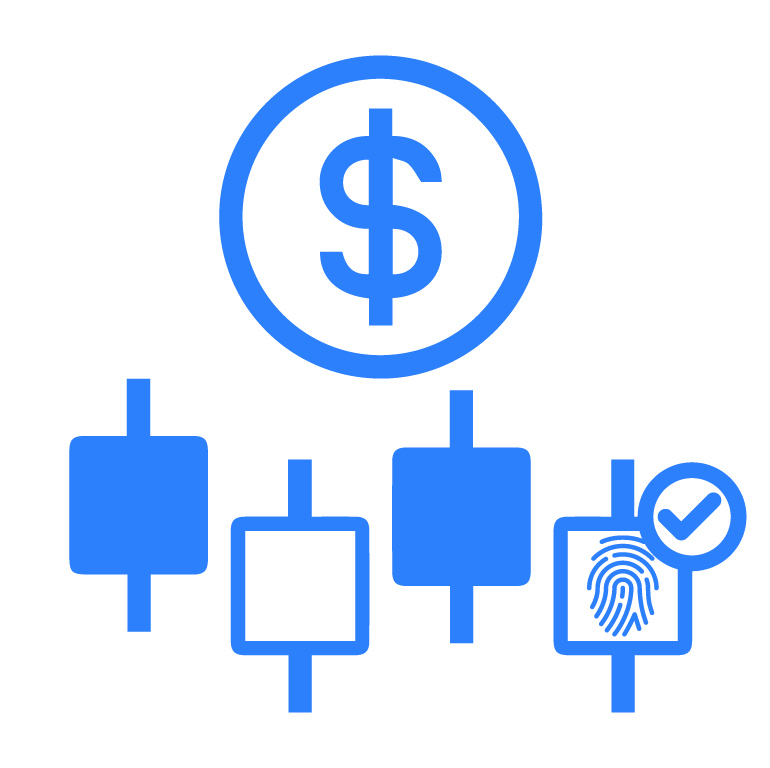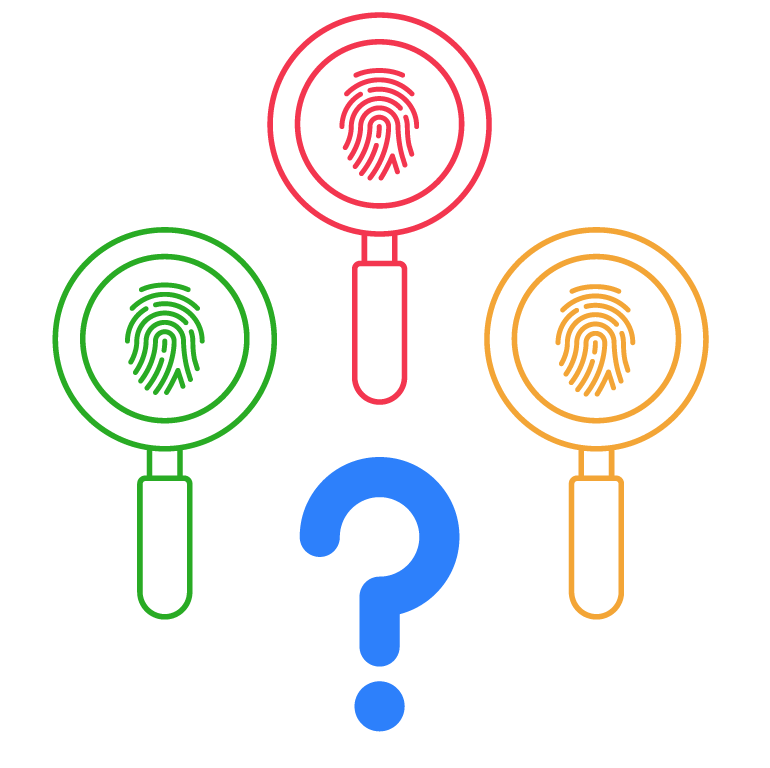Contents
Know Your Customer (KYC) is a process of verifying the identity of customers. As lots of financial services have migrated online, there is often no face-to-face interaction between the clients and service providers. As a result, KYC is becoming increasingly important to prevent money laundering activities. It is also required by the regulatory authorities to acquire extensive information on clients, before allowing them to make transactions.

Toronto, ON
Medium
2008
KYC
SecureKey leverages the blockchain technology to allow users to share their digital identities with third party providers.
Read Review Visit Webpage
Tokyo, Japan
1988
Large
KYC

New York City, NY
Large
2013
KYC

San Jose, California
Large
1956
KYC
FICO products allow customers to dynamically manage AML and KYC processes and stay compliant with the changing regulations.
Read Review Visit Webpage
Vancouver, Canada
Medium
2011
KYC

London
Large
1999
KYC

Emeryville, CA
Medium
2012
KYC

Kennesaw, GA
Medium
2007
KYC
International Screening Solutions offers an innovative approach to screening and risk compliance
Read Review Visit Webpage
Portland
Medium
2014
KYC

London
Medium
2010
KYC
Arachnys provides KYC solutions to businesses in the finance industry facilitating customer identification and verification processes.
Read Review Visit WebpageBesides money laundering, additional threats arose in these last few years, that solicited a strict regulatory response. Terrorist financing has been a huge issue, as money transfer channels are used to finance terrorist activities across the world. Thus it became imperative to not only know the identity of a customer but to also judge the character of the client and to assess the possible purposes they might be using the service for. KYC rules apply not only to banks but to any institution that offers financial services through which users can move money. These services could include online wallets such as PayPal or Skrill, money transfer services like Western Union, exchanges and brokerages, and so on.
KYC rules apply only to individual clients but to companies and firms using financial services as well. Different countries have different KYC regulations. If you have ever tried to purchase cryptocurrency from an online exchange you would have had to go through an extensive verification process. Some exchanges require you to submit photos of your ID and passport, proof of residence, etc.
You might have also noticed that certain exchanges request more information and proof than the others. This could happen for several reasons. Some jurisdictions might have a more strict approach with KYC requirements, while others may be more lenient. So, depending on where the service provider is incorporated, they might be subject to different requirements. Also, even though there are regulatory forces overseeing the implementation of the KYC process in private companies, sometimes they do not publish detailed guidelines on how to achieve a satisfactory process of user identification. In such cases, it falls upon the companies to decide how extensive a process to implement. Some choose to be safe and require more information from customers, while others think that tedious registration might scare away the potential clientele.
A new trend has also emerged in introducing different verification levels for online services. A higher level is accessed when more documentation is submitted. With a higher verification level, different functionality can be accessed. This allows companies to attract a user-base without breaking the KYC regulations.
 So what is KYC process that some of the financial providers might be required to go through? Those include verifying the identity of the customers, checking if there are real people behind the accounts, double-checking the prohibited lists to see if the customer has come under question and assessing if the customer might use the services in the future for money laundering or other illegal purposes.
So what is KYC process that some of the financial providers might be required to go through? Those include verifying the identity of the customers, checking if there are real people behind the accounts, double-checking the prohibited lists to see if the customer has come under question and assessing if the customer might use the services in the future for money laundering or other illegal purposes.
In the US companies have two requirements regarding KYC: Customer Identification Program (CIP) and Customer Due Diligence (CDD). While specific requirements might differ in other territories, the general principles are maintained in most of the developed world. KYC procedures differ for individual clients and companies. For CIP, companies are required to gather the following information on individual clients: Name, date of birth, address, identification number. Depending on the riskiness of a client, some additional information might be required. Banks and financial institutions might rely on third parties for this information under certain circumstances.
KYC procedures differ for individual clients and companies. For CIP, companies are required to gather the following information on individual clients: Name, date of birth, address, identification number. Depending on the riskiness of a client, some additional information might be required. Banks and financial institutions might rely on third party KYC vendors for this information, under certain circumstances. For companies, under CIP, service providers might be required to collect the following information: certified articles of incorporation, business license, financial statement, financial references, etc.
CIP is a more straightforward process. CDD, on the other hand, requires a more nuanced assessment of each customer. For Due Diligence, companies are required to assess the patterns of the transactions of individual clients. Later, these assessments are used to judge when a client makes a transaction that does not fit into the pattern. Depending on this process, each customer must be assigned a specific risk rating. If the risk is too high, services to the customer could be terminated.
For CDD, customers might be asked to provide additional information to the data collected during the CIP process. This information could include occupation, description of their business activity, a specification of purposes of transactions, references, sources of the used funds, and so on. It is really a task of the service provider to assess what information will help them best in estimating the riskiness of a client.
For businesses, there is a clear trade-off between security and revenues. Overburdening KYC regulations might eliminate the risk of being penalized for non-compliance, but it will also cost the company a user-base, as many innocent customers will not be able to access services. Fines for KYC failures could be very high. A few large banks were each fined $2 million recently for exactly this reason. On the other hand, there are territories that offer regulatory havens for firms. Those who have the resources to relocate their operations to those territories might be able to offer their clients more easily accessible services. A balance has to be found, that is often easier for experienced KYC professionals and teams.
In addition, gathering and processing information is often expensive and requires human resources that might not be readily available at companies. In such cases, it is often easier and cheaper to find KYC outsourcing services, with the processes already set up and ready to go.
 What do the KYC solutions providers do?
What do the KYC solutions providers do?KYC solutions range in services that they provide. Some might take on an advisory role and give companies legal counsel on how effective their KYC services are. Others offer technologic solutions, such as biometric processing and engineering of client registration procedures. For virtually any company handling money, that also deals with a large customer base, it is impossible to comply with KYC regulations without automating the process. This can only be done through advanced technology, which is expensive to develop. For this reason, third party KYC service providers have emerged, which offer already set up automated processes.
Some firms offer more continuous services, like transaction monitoring. These providers use intelligent software to look at users’ transactions more comprehensively. They are able to find operations that fall out of the ordinary behavior of a specific user. There are also blacklist KYC providers, that maintain a list of customers that had been judged as high-risk at some point before. These lists are used to cross-check the customer base to easily identify potential high-risk clients.
When finding a customer that might be carrying a potential risk, it is the responsibility of companies to notify regulators. This process can be automated as well using third-party providers that will handle those kinds of communication.
With financial and banking sectors growing at an increasingly rapid rate, the importance of KYC, as a method of countering the rising number of illegal activities, including identity theft, fraudulent financial schemes, money laundering, criminal financing, and round-tripping schemes, cannot be underestimated. As a matter of fact, KYC practices have entrenched themselves so solidly in the industry, that the major sectors have become fully dependent on KYC service providers for efficient operations. This has been particularly evident in a number of cases within the industry, that we shall take a closer look at.

The first sector that has arguably been the biggest benefactor of KYC as a service, that we shall be looking into, is the insurance sector. The insurance field as a whole is one of those industries, which are most susceptible to, and see major losses annually due to illegal activities and fraudulent schemes. While it may be argued, that individual cases of daily frauds may not seem as in any way impactful to a gargantuan industry that is insurance, the contrary is actually true, and when we sum up the effects of small scale daily frauds, we shall see that the negative impact becomes quite sizeable.
The major reasons, as to why some insurance companies fall victim to the activities of scammers and fraudsters, is because of the inadequate KYC procedures that they have in place, resulting in the cracks within security measures, cracks that aforementioned fraudsters seep through, with results being very much evident, leading to insurance companies losing the average of $30 billion annually.
While the diversity of such frauds is quite impressive, the two most common schemes utilized have emerged over the past few years, those being money laundering and fronting.
The money laundering schemes are pretty straight forward. The fraud itself is divided into 3 stages, making such activity harder to identify. At first, the money launderer places the “dirty” money into the financial account and moves on to the second stage, where, in order to minimize the risk of identifying the illegitimate money, those funds are moved in a series of transactions, effectively “cleaning” the money, bringing us onto the third and final stage, where what now seems to be completely legitimate funds are brought into the circulation, finding various other activities.
What money launderers do, is they buy insurance, often with sizeable sums, granting them premium life insurance policies, and then simply submitting claims, terminating their insurance, and laundering their illegitimate funds. What appeals most to them with this method is the relatively low-cost of withdrawal fees that they have to pay up.
Another frequently employed strategy by fraudsters is through identity theft, where insurance policies, often the most pricey ones, are taken in the stead of another person, the latter being unaware of this action taking place.
The impact on insurance companies, due to such activities, is not only the monetary one, as the frequency of frauds attracts the attention of regulators, with the ensuing exposure negatively impacting the prestige and reputation of the insurance company in question.
It is here that the window of opportunity for KYC data providers opens up, providing a significant benefit to insurance companies. Through services offered KYC providers, an effective security layer is placed on the company, with KYC screening exposing potential fraudsters, preventing any sort of illicit activities from taking place.
 Forex trading and KYC
Forex trading and KYCWhen it comes to KYC service and Forex trading, there is a special relationship between these two fields. Forex is growing exponentially, with more and more traders, from all over the world, joining the world of Foreign Exchange, and new brokerages emerging on a near-daily basis to partake in this extremely lucrative industry. As the field continues to expand globally, with traders from developed countries partaking regularly in daily trading, developing nations seeing a steady growth of their own share of the market, and emerging companies vying to increase their presence in the industry, the introduction of new regulations and expansion of the existing ones is an unavoidable reality.
These regulations have a direct impact on the way the entire industry operates, for traders and brokers alike, with things like licensing, auditing, customer onboard, and more being directly affected. But since Forex is a global phenomenon, there are no unified guidelines on how the industry as a whole should operate. Instead, it is subject to a wide range of various rules and regulations, in different geographical areas of the globe, with varying scopes and implications, the extent to which cannot simply be measured.
There are, however, a set of regulations that are almost universally applicable to the Forex industry in general, regardless of where brokers may be operating, and directly affect how they get new traders to join their platforms, those being the AML and KYC regulations. It is under these regulations that brokerages are obliged to conduct meticulous checks of their new clients, ensuring that their identity verified and confirmed.
But undertaking such a gargantuan task may be more easily said than done, especially in the era where Forex trading is made easily accessible from any mobile device, at a moment’s notice. Checking and verifying every single person wishing to join a particular Forex platform manually is an extremely wasteful undertaking, requiring additional manpower to be dedicated solely to this task. Not to mention, that doing this manually is guaranteed to be prone to frequent errors, and extended customer onboarding process, which is not something any company would be willing to do.
Considering these inefficiencies, naturally, Brokers are hesitant to manually conduct the verification process, and this is exactly where AML KYC service provider factors in. Through their services, the onboarding process is made extremely efficient, fast, and effective, ensuring that all the requirements of customer verification under regulations are met and protecting brokerages from potential fraudulent schemes, all while maintaining onboarding quick and easy.
 KYC in online lending
KYC in online lendingLooking into the rapidly-growing field of online lending, it is no surprise that this field grows as quickly as it does, offering greater convenience, ease-of-access, and speed of services, compared to more traditional lenders, especially gaining significant traction following the financial crisis in 2009. Unsurprisingly so, with the rapid advancement of this sector, a wave of scammers and fraudsters have flooded in, attracted by the appeal of new, lucrative, opportunities for new financial fraud.
Similar to insurance, the number of different fraudulent schemes within the online lending can be identified, yet a few of them have been encountered far more frequently, as the number of such schemes have been steadily growing in the past two years.
One of the most common types of frauds seen within this sector is done through what is referred to as the application fraud. The way this particular scheme works is through the use of fake identity, often being a stolen one, or a Frankenstein’s monster-esque synthetic identity, created through the combination of various information gathered from data breaches and social media accounts. what happens is, the fraudster applies for a sizeable loan using such identities, with no plans of paying it back to the lender of course. The usage of fake identity ensures the near-untraceability of the debtor, leading to significant losses for online lenders.
The reason why such fraud schemes tend to be successful is due to the nature of the security measures in place in many online lending companies. While those systems are pretty good at detecting suspicious elements in individual applications, such fake identities tend to be well enough crafted to not raise any eyebrows at a single glance. What such systems don’t take into account is the fact, that fraudsters tend to apply with a number of different fake identities at the same time, all of which have similar patterns to them. Yet the inability to see through these patterns is what leads to such frauds sipping through and getting away with sizeable sums of money.
This is where KYC software vendors once again step in to save the day. By utilizing a wide network of digital data, which is aggregated from a wide range of sources and industries, they are able to better evaluate loan applications, being much better at identifying common patterns across many applications, easily identifying application fraud.
 How to choose a KYC solutions provider?
How to choose a KYC solutions provider?Choosing a KYC provider is an important decision, as in case of failure, the companies are liable for the mistakes themselves. As there is no cheap and easy way to audit the internal processes of KYC solutions, companies can assess the reputation of the providers. If the providers have a large client base, it is likely that they are successful in implementing effective KYC processes. It is also imperative to check if the client-base of the provider matches one’s business needs. As mentioned, different territories have different regulations, so if a provider is experienced in addressing the KYC needs of one regulatory force, they might not be as effective in dealing with a different jurisdiction.
The choice of KYC service providers also depends on the information needed by the company. Businesses, which need to verify online users’ identities, require different services, when compared to those dealing with clients face to face.
There is also a legal factor to be considered when deciding to use a third-party KYC vendor for implementing the KYC procedures. Some regulators might have different views on the issue. Depending on the business and the process, a third-party provider might not be acceptable for the regulator. These issues can often be sorted out with the providers themselves.
Additionally, some business operations might change, depending on the services provided by KYC solutions. If too much needs to be outsourced, then some additional risks to the company may arise, and losing control of the business processes is definitely not in the interest of any company.
One quick way to check the services in advance is by requesting a demo. Many companies offer free access to their KYC products for a short period of time, to give companies the ability to compare different providers and choose the one that will be best for their business needs.
Get the most recent news at your inbox
Stay up to date with the financial markets everywhere you go. We won’t spam you.
